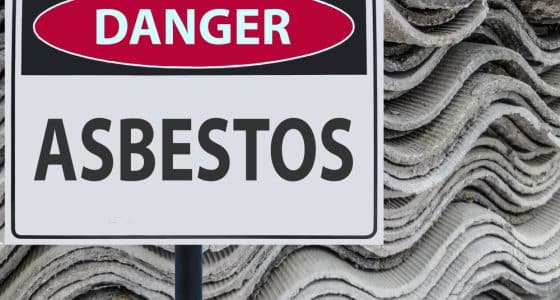Despite decades of research establishing a clear link between exposure to asbestos and malignant mesothelioma, the United States remains one of the few developed countries that has yet to ban the carcinogenic substance. Following recent reporting on unsafe conditions in American factories, members of Congress are renewing their efforts to pass the Alan Reinstein Ban Asbestos Now Act.

Despite Link to Mesothelioma, Asbestos Continues to be Imported into the U.S.
After the public became aware of asbestos’ role in causing malignant mesothelioma, ovarian cancer, and other serious illnesses, most traditional applications of asbestos were discontinued. But the chlorine industry continue to use the carcinogenic material, and the chemical industry has worked hard to lobby against efforts to impose a ban. But with increased awareness of the material’s danger and media exposure of factory workers being diagnosed with mesothelioma and asbestosis, congressional concern has renewed, and with that concern has come a call to get the Alan Reinstein Ban Asbestos Now Act passed.
Alan Reinstein died of malignant mesothelioma in 2006, and since that time his wife Linda has been a powerful advocate for banning asbestos, raising awareness of asbestos-related diseases, and raising funds in support of research. As co-founder of the Asbestos Disease Awareness Organization she has spent years encouraging passage of the bill, which would ban the import and use of six types of asbestos fibers. In response to Congress’ renewed interest in the bill, she said, “This long overdue legislation will protect all Americans — especially vulnerable workers, disadvantaged communities, consumers, first responders, and children — who are most at-risk from being exposed to this deadly carcinogen.”
Oregon Democrats Leading Push to Ban Asbestos
The reintroduction of the bill in Congress is sponsored in the U.S. House by Representative Suzanne Bonamici and in the Senate by Senator Jeff Merkley, both Democrats from Oregon. Speaking of the need for action, Merkley said, “Any expert will tell you there simply is no level of exposure to asbestos that is safe for the human body. We’ve known for generations that asbestos is lethal, yet the U.S. has continued to allow some industries to value profits over people.”
As Congress considers the bill – which has repeatedly been discussed over the last several years – the Environmental Protection Agency is also considering an asbestos ban. It is hoped that regulation of the material will be finalized by the fall of 2023.
If you or someone you love has been exposed to asbestos and you need information, contact the Patient Advocates at Mesothelioma.net today at 1-800-692-8608.
